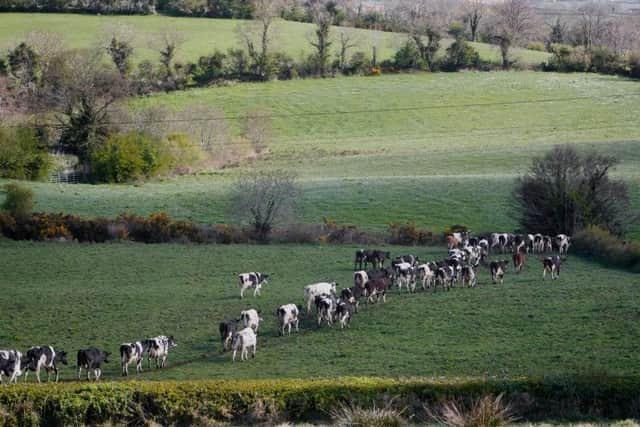Towards a sustainable future


The recent news from Holland highlights the impact of environmental regulation on food and farming. The Dutch dairy industry is embarked on a program of measures including a reduction of their national dairy herd by 175,000 cows in an effort to bring its phosphate surplus into compliance with EU law.
Similar pressures exist in Northern Ireland and farmers cannot afford to ignore the environmental impact of intensive agriculture. The excellent work of the Greenhouse Gas Action Plan and the recently launched Land Management Strategy point the way forward. Through a program of precision farming and efficient use of inputs businesses can grow and develop without increasing their carbon footprint.
Advertisement
Advertisement
The local feed trade has responded to the issue of phosphate balances by firstly commissioning extensive trials over a number of years at AFBI Hillsborough which sought to determine the minimum level of phosphate supplementation required by the dairy cow.


Over the last 10 years or so phosphate in dairy diets has been reduced by around 25% on the basis of this industry research. Phosphate in pig and poultry diets has been reduced by around 30% as specialist enzymes which improve the utilisation of dietary phosphate have been widely employed to reduce the level of supplementation required.
The applications of phosphate fertiliser to land has also shown dramatic reductions with use of fertiliser now only 25% of the levels of 20 years ago. Better understanding of the value of farm manures and improved storage capacity has brought improvements to farm profitability as well as lowering the phosphate level in our waterways.
There is considerable scope to further improve our phosphate balances through driving greater output from grass and mining the reserves of phosphate in the soil through grazed or conserved forage. Attention to areas such as soil Ph and optimising nitrogen and potash applications can increase productivity hence removing phosphate from the soil. Soil analysis is the key to delivering the precise requirements of the crop in the ground and will deliver optimum yields while ensuring that money is not wasted on unnecessary nutrients.
Advertisement
Advertisement
The local supply trade strongly promotes the efficient use of all farm inputs as the key to a profitable production system which minimises the emissions from surplus nutrients. The Feed Advisors Register which now comprises 120 field advisors in Northern Ireland is based on training the suppliers of feed and fertiliser on effective use of these materials in a sustainable and cost effective way.


FINANCIAL VIABILITY
The fundamental issue of sustainability in agriculture for many farmers centres on financial viability and whether the business can be held together for the next generation. The current profitability crisis has seen a major increase in farm borrowing (and trade debt) which will take some years to correct.
The uncertainty caused by the UK withdrawal from the EU has damaged confidence in the future of the industry and the government response hasn’t brought any reassurance. Whitehall is showing no appetite to continue the current system of farm support beyond 2020 and it remains to be seen what will replace the annual injection of £240 million of cash into the rural economy.
Whatever the future holds there is no doubt that businesses with a high level of technical efficiency, making best use of their own resources and controlling costs will have the best chance of survival. This is also the approach which will deliver the environmental sustainability which will be the key to future growth in the agri-food sector.